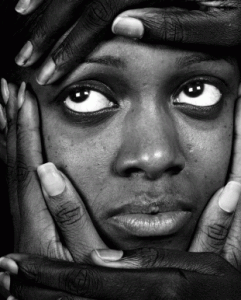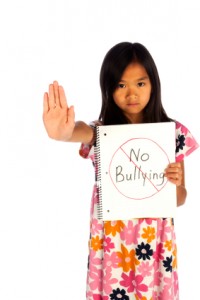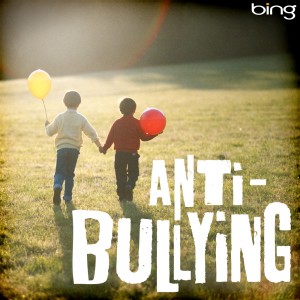|
|
November 24, 2012
I just got an(other) email from a teen being tormented by rumors. This stuff makes me angry and frustrated and sad. I have a pretty clear sense of how it makes the kids who’ve been targeted feel…. in a word, powerless! And while it’s true no one has the power to un-do a rumor that’s out there, if you or someone you know is suffering from the damage of a rumor, please read on. You are not powerless.
 Why are they spreading these lies? Hey Terra,
There are people spreading rumours at my school saying I had sex with my boyfriend behind the building. I don’t know how it started, and it’s not true! This is horrible and it’s hurting me and my boyfriend a lot! I am getting many harsh words and looks from people I don’t even know 🙁 What am I supposed to do ? Help me please!!!!!!
Lost and Hurting
Dear Lost and Hurting,
I’m really sorry people are being cruel to you and to your boyfriend. People who spread hurtful lies lack self-confidence and compassion. What can you do about what they’re saying? Well, unfortunately, you can’t un-do the rumor. It’s out there. You also can’t un-do any assumptions people have made about you and your boyfriend. What you CAN do is:
- Hold on to your self-respect.
- Hold your head high because you know that you’ve done nothing to be ashamed of.
- Try not to let them upset you with their “harsh words and looks.” I know that’s not always easy, but you impress me as a girl who is strong and self-confident, so work on staying in control of your emotions.
- Do not talk to anyone about the rumors or about the people who are spreading them. That would only increase the “warfare.” It’s not helpful. Don’t go there.
- If someone says something to you, look them in the eye and simply and calmly say, “That’s not true.” No yelling. No trying to convince anyone of anything. Just state the fact: “That’s not true.” Then end your part of the conversation.
Hopefully this “social garbage” (which is exactly what rumors are) will fade away soon. Your real friends will stick with you. If this garbage doesn’t fade away and you continue to be harassed, please talk with the school counselor and/or your parents.
I hope this helps.
Oh, and read this blog of mine about teen rumors.
In friendship,
Terra
She wrote right back:
Thank you so much Terra!!!! I’m really grateful! 🙂
Then so did I:
I’m glad to know that I’ve helped in some way. Enjoy the rest of your holiday weekend. And on Sunday night, re-read my email, especially the things you CAN do, so if the garbage rumors continue on Monday, you’ll know how to take care of yourself.
In friendship,
Terra
Ninety-nine percent of the time I get email about rumors, it’s from the person being victimized. But that’s just one side of the story, isn’t it? We all know that rumors go nowhere without many willing mouths (and fingers) to spread them. If you’ve spread a hurtful rumor, (whether you started it or not) and you now regret the pain you caused, that’s a good place to start thinking about rumors and all of this stuff. You can’t un-do what you did, but you’re not powerless. You can still make things better. Got some ideas how?

November 8, 2012
I originally wrote a version of this article for TakePart.com, an interactive publisher and the digital arm of Participant Media. Check out my weekly Education posts there.
 "Help! I'm drowning in social garbage!" I’ve been answering teen email since 1997. The ongoing Q&A has made me an expert on the social garbage many 11-17 year olds slog through every day. Typical teen questions include:
- What do you do if your friend is mad at you but won’t tell you why?
- What do you do if people are spreading rumors about you and no one believes that they aren’t true?
- What do you do when friends pressure you to do stuff you don’t want to do, but you’re afraid not to because they’ll make fun of you?
Sound familiar? These might be the same issues we once dealt with, but our children aren’t responding to them the way we did before social media. When 21st-century kids experience peer conflicts, online and off, they typically respond with a level of social aggression (aka verbal violence) that damages individuals in profound ways and pollutes school climates everywhere.
In September I spoke with nearly a thousand students at a couple of international schools, one in Singapore and another in Chiang Mai, Thailand. We talked about Real Friends vs. the Other Kind, based on my Middle School Confidential series. In each presentation the kids and I discussed tough issues like: stress, peer approval addiction, and the brain’s occasional habit of working against our desire to do the right thing. Even though I was 7,000 miles from home, the comments and questions coming from these students expressed the same conflicts and emotional confusion I’ve heard repeatedly from kids in San Jose, St. Louis, and Philly.
Back in the last century, when we had a problem with someone at school, we went home for dinner with the family, did homework, and watched TV. Sometimes we even read a book to take our minds off school and social garbage. The next morning in class combatants were usually less combative and we were all better able to concentrate on whatever we were expected to learn.
Today’s kids are mind-melded with peers 24/7. School and home are equally conducive for frantic texting and getting more people involved in the drama du jour. Status anxiety regularly submerges so much mental real estate, our students are often flooded with destructive emotions. They can’t think clearly when they’re upset. No one can. Which is why the adults who live and work with kids need to actively teach kids to be good people, otherwise, their moral compasses will be calibrated solely by their equally clueless peers. (Not a pretty thought!)

August 23, 2012
So, summer’s winding down. I broke my arm, but at least I was enjoying a bike ride when it happened. Hopefully you didn’t have that kind of break. Instead, I hope you and your kids shared some quality, unplugged time and reconnected, as a family.
If school hasn’t already resumed in your community, it will soon. On the plus side, that means your children start a new chapter with new opportunities to learn and grow, academically, creatively and socially. A positive attitude from you goes a long way in easing any of the kids’ nervousness or anxiety about the new school year.
 Maybe I let it slide last year, but this year, I'm saying NO! Unfortunately, for many kids, back-to-school also means heading back into the same sea of social garbage from whence they escaped in June. And thinking about all of that is stressful, as you can see from this email from an 11-year old who is worried about what’s in store for her:
I’m going into 7th grade and there are these girls in my grade that think they are better than everyone. All last year, they judged me because I like this one boy that likes me back. I think they are just jealous but they made up this rumor telling people that I am jealous of them! I’m just average. But they think that school is for getting boyfriends and being rich! (They each have like 7 boys now!!) School is starting next week. Please HELP ME!!
—Alone and Scared
Dear Alone and Scared,
Sometimes the people around us are not very nice. You don’t need me to tell you that it’s hard to relax and enjoy yourself when people are judging you. These girls may believe that talking about you and giving you a hard time, is “no big deal” or that somehow you deserve to be treated this way. But they’re so wrong. Cruel’s not cool. What they’re doing is hurtful and not OK. Maybe if someone told them to “Stop the hating” they’d wake up and change their behavior. Or maybe not.
You signed your letter “Alone and Scared.” I get that you’re scared, but you’re not alone. There are adults who care about you. And other kids too. If this situation starts up again, let your parents know what’s going on. They can help turn this around. Talk to a teacher or have your parents call the school and set up a meeting with these girls and their parents.
I know this sounds like a bold move, and it is! But I also know that you have what it takes to stand up for yourself. If you stay silent and don’t get adults (at home and at school) involved now, chances are pretty good that this situation is going to escalate throughout 7th grade and beyond. (That means things are going to get worse.) On the other hand, but if you push through your fear, and be brave enough to get the help you need, you can help yourself and any other kids who’ve been targeted. You can also help to change your whole school!
Go for it and have a great school year!

July 14, 2012
Part 1 | Part 2 | Part 3 | Part 4
Here’s the final installment of this ‘expert’s‘ 4-part Bing Summer of Doing series. (Bing’s got lots of cool stuff happening through Sunday, but since the word of the week is Giving, tomorrow David and I are doing the AIDS WALK SF, so no blog from me. If you’ve missed anything I’ve served up on this shift, check out the blogs from Monday (Giving), Wednesday (Unplugging) and Friday (Urban Gardening). Today we’re talking Anti-bullying, so let’s get at it.
 Bing Summer of Doing – Be nice, do nice When stuff comes up between real friends, they show how much they value the friendship by working things out. That can be especially hard when Friend A crosses the line (knowingly or un) and Friend B is upset. But with real friends it’s worth the effort it takes to talk and listen and understand each other’s point of view.
Friendships get damaged when stuff that needs to be said is left unsaid. Unexpressed emotions don’t just fade away. Often they work like acid, silently eating away at a relationship’s foundation. We start doubting our friend’s intentions. We look for evidence to reinforce our doubts while demanding reassurances that our doubts are ungrounded. We talk about the friend instead of talking to him/her. If you’re beyond middle school, you know this crap never helps. It only makes things worse.
Kids with the stickiest peer relationship issues are 6th and 7th graders. Their interpersonal challenges have become increasingly complex. Unfortunately, their ability to resolve conflicts in their multi-tiered friendship doesn’t match the challenges they face. And so it goes in the 21st century. We communicate with more people, but the way we do it, through texting, chatting and tweeting, increases the likelihood of miscommunication, which leads to hurt, jealousy, betrayal, retaliation, AKA social garbage. Unless we learn to effectively resolve conflicts with the folks we like, we’re not going to be able to stand up for ourselves with truly aggressive people, i.e., bullies.
The following question was asked of me by a 6th grader:
What do you do if your friend is bullying you and you don’t want to hurt them?
Sounds like you’re getting hurt by a friend but aren’t willing to stand up for yourself. You’ve got to learn to be your own best friend. That means acting like you deserve to be treated with respect. This new self-respecting attitude won’t guarantee respect from others, but it does mean that when people treat you badly, you let them know it’s not OK.
You say you’re being hurt but you don’t want to “hurt” your friend by telling him/her to cut it out. I understand your hesitation. Nobody likes to be told that they’re out of line. Your friend might get mad at you and that’s never pleasant. S/he might say, “I don’t know what you’re talking about.” In which case you’re left feeling confused and embarrassed. Your friend might even accuse you of trying to “ruin” the friendship and may turn other friends against you. OR… s/he might stop and think about what you’ve just said and make some positive changes. That would be a good thing, right? But when we stay silent about things that are bothering us, the person who is ‘bullying’ continues to bully. Things usually just stay the same or get worse. But when we’re brave enough to risk standing up for ourselves (or for others who are being mistreated) we open the door for change.
Back to the question from the 6th grader. How would you have handled that situation when you were 11? How does the question and my advice, apply to any of your current relationships? Funny how our middle school experience can sometimes feel like it all happened in another lifetime… to someone else. Or it can feel like we’re still right there. sigh.
 — Older Posts »
| |















